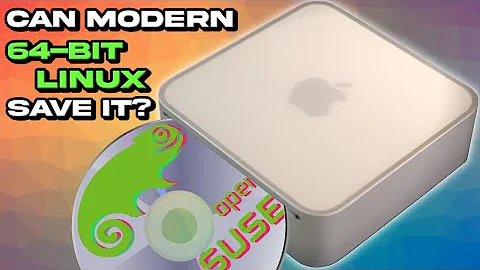32bit EFI with 64 bit linux OS. Can it be done?
Solution 1
It is certainly possible, because I am right now typing this answer from a 64-bit Ubuntu system on a machine that exclusively boots with 32-bit UEFI.
Last year, I had to boot from GRUB command line after running the installer and then compile GRUB using instructions here by Lopaka (now updated)
But with Ubuntu 16.04 I was amazed to find it installed the correct, 32-bit version of GRUB without any special intervention on my part :)
I suspect this is because both versions now get installed to the ESP... have a look:
/boot/efi/EFI
├── Boot
│ ├── bootia32.efi
│ ├── bootx64.efi
│ └── bootx64.efi.grb
├── grub
│ ├── grub.efi
│ └── grubia32.efi
├── grub_uefi
│ ├── grub.efi
│ └── grubia32.efi
├── Microsoft
│ └── Boot
│ ├── bootmgfw.efi
│ ├── bootmgfw.efi.grb
│ ├── bootx64.efi
│ └── bootx64.efi.grb
└── ubuntu
├── fw
├── fwupx64.efi
├── grub.cfg
├── grub.efi
├── grubia32.efi
├── grubx64.efi
├── MokManager.efi
└── shimx64.efi
But the ESP remains somewhat mysterious to me, I admit...
I must warn that others haven't found it as easy to achieve this precarious state of harmony as I have... Some people with my device, for example, find that GRUB will not install and so the installation will not complete. However, if that happens it is possible to exclude GRUB from the installation and fix it by booting a live session and installing 32-bit GRUB by a chroot method. I'm not sure how you'd manage this with a tablet.
TL;DR
It is possible, but not at all guaranteed to be free from complications...
Solution 2
You can install Fedora version 27 or later. Fedora included the required files on it's standard 64bit ISO installer. However Fedora doesn't have the LTS option that Ubuntu has.
Ubuntu as of 18.04 LTS does not support this out of the box. People have jumped through hoops to get these installs done, but it isn't trivial.
Related videos on Youtube
Huw Evans
Maths Student, Linux enthusiast and martial Artist. I am a graduate in Mathematics from Kings College London. I tinker with Linux and my current project is to get a working touchscreen interface on my HP Stream Tablet. I use, Arch, debian, ubuntu and mint. Haven't decided which I prefer yet. My main style of martial art is Shorinji kempo, a style that specialises in wristlocks, and strikes to accupoints. It also has various healing techniques designed to relieve the pain and damage done by both wrist locks and strikes of this kind. I am keen to stress that unlike many people I do not accept the idea of ki or Qi or Chi as a life energy. I also do not accept the notion of meridians as anything other than a way to find accupoints. Nor do I believe that accupressure or accupuncture has uses beyond those noted above. There is too much medical evidence for me to doubt it's ineffectiveness.
Updated on September 18, 2022Comments
-
 Huw Evans over 1 year
Huw Evans over 1 yearI have a 32bit ubuntu linux install on an hp stream 7 tablet. For the sake of long term support I would like to install 64bit ubuntu linux on this device.
The tablet has a 64 bit intel baytrail processor. Unfortunately it also has 32bit efi. As things stand, update grub installs an efi bootloader that works perfectly. If I upgrade the install to 64bit will this still be the case?
I know that debian has support for this from Jessie onwards. Will ubuntu also support this weird setup?
-
 Huw Evans almost 8 yearsPut that as an answer Zanna. I want to give you the internet points.
Huw Evans almost 8 yearsPut that as an answer Zanna. I want to give you the internet points.
-
-
 ctrl-alt-delor almost 7 yearsWhat install media did you use? I will be installing Debian 9. One of my laptops I have never got to boot into 64 bit. But I did switch the kernel to 64bit. I suspect it is 32bit grub, and 64bit kernel. Unfortunately this has left user land as 32bit. I want 64bit, but to be able to boot, and install.
ctrl-alt-delor almost 7 yearsWhat install media did you use? I will be installing Debian 9. One of my laptops I have never got to boot into 64 bit. But I did switch the kernel to 64bit. I suspect it is 32bit grub, and 64bit kernel. Unfortunately this has left user land as 32bit. I want 64bit, but to be able to boot, and install. -
 Zanna almost 7 years@richard 64-bit Ubuntu iso extracted onto USB using sgdisk but these days I actually use a script (work of harryharryharry on Ubuntu Forums) to repackage the iso with squashfs. Reading it though, looks like the only thing it does relating to UEFI is place the bootia32.efi file in the right directory of the image so that the USB boots...
Zanna almost 7 years@richard 64-bit Ubuntu iso extracted onto USB using sgdisk but these days I actually use a script (work of harryharryharry on Ubuntu Forums) to repackage the iso with squashfs. Reading it though, looks like the only thing it does relating to UEFI is place the bootia32.efi file in the right directory of the image so that the USB boots...




